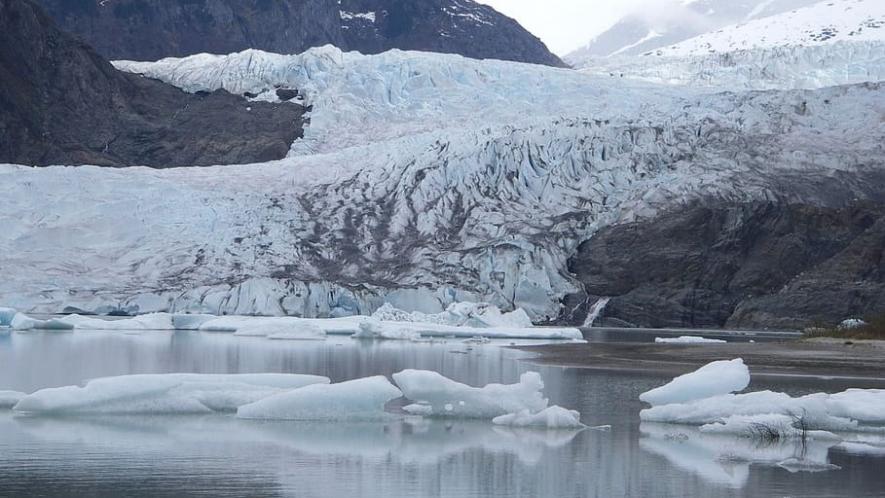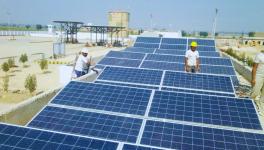Glacial Melting to Result in new Ecosystems, Challenges

Representational Image. Image Courtesy: Wallpaper Flare
Global warming, caused by greenhouse gas emissions from fossil fuel burning, is showing its heaviest impact on glaciers.
A recent study on Alpine glaciers published in Nature suggests that more than a fifth of the glaciers will be reduced due to rising temperatures within this century. This, according to the study, will change the ecosystem by exposing vast swaths of land to the atmosphere for the first time.
New ecosystems will emerge posing new challenges to conservation, which can be viewed as a new opportunity, the researchers claimed.
Glacial melting and the emergence of new ecosystems will be the fastest ‘ecosystem shifts’ in the anthropogenic climate change scenario, the researchers wrote, which will have cascading consequences on societal and ecological aspects.
The Alpine glaciers outside Antarctica and Greenland are spread around 6,50,000 square kilometres. The glaciers act as a water source for nearly two billion people and ecosystems around the globe. The melting of these glaciers will profoundly affect people and ecosystems and will be the most profound impact of global warming.
The researchers of the Nature paper modelled the glaciers to understand how they will appear in the future under both high and low greenhouse gas emissions scenarios. Even in the most optimistic situation, the glaciers will melt leaving behind an area twice as large as Ireland. This will expand in a high-emission scenario. The study suggests that the most significant impact will be felt in Alaska and the Asian high mountains.
Jean Baptiste Bosson, the study's lead author, in a statement to the article of Jeff Tollefson written about the research, said, “This could be one of the largest ecosystem changes on our planet.”
The researchers projected that 78% of the newly exposed terrain due to glacial melting would be on land and 14% and 8% of the area newly freed from ice would be in marine and freshwater regions respectively.
Bosson, in the same article, was quoted to have said that many of the areas could be new habitats for plants and this must be protected when deforestation elsewhere is rampant. The new ecosystem can also provide new shelter to species threatened due to climate change in other areas like at lower elevations of mountains.
Francesco Ficetola, a zoologist at the University of Milan, Italy, commenting on the study results, said in Jeff Tollefson’s article, “The study provides useful guidance for scientists who are working to understand how microorganisms, plants and animals move into pristine spaces.” Experts believe that the study may help governments to plan for better land management.
Bosson opined that the study is a reminder of the urgent need to reduce greenhouse gas emissions and pointed out, “We are at a turning point for glaciers. We can save something like 75% of the current ice up to the end of this century, but we have to act.”
It is worth remembering that the Arctic is warming at double the rate of the rest of the world and the unabated high emissions pose a serious threat. Vanishing of the glaciers, as has been revealed by various studies, will bring drying up of water sources, posing a great threat to the existence of billions of people across the world.
Get the latest reports & analysis with people's perspective on Protests, movements & deep analytical videos, discussions of the current affairs in your Telegram app. Subscribe to NewsClick's Telegram channel & get Real-Time updates on stories, as they get published on our website.
























